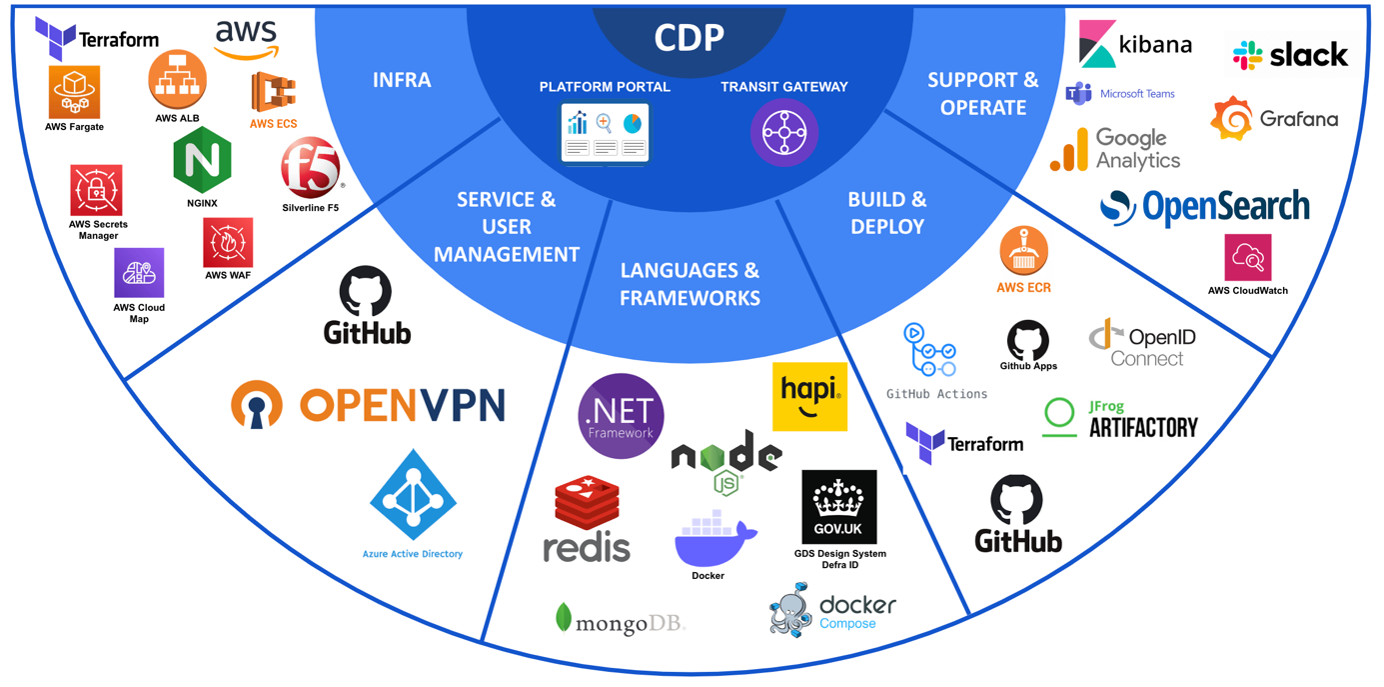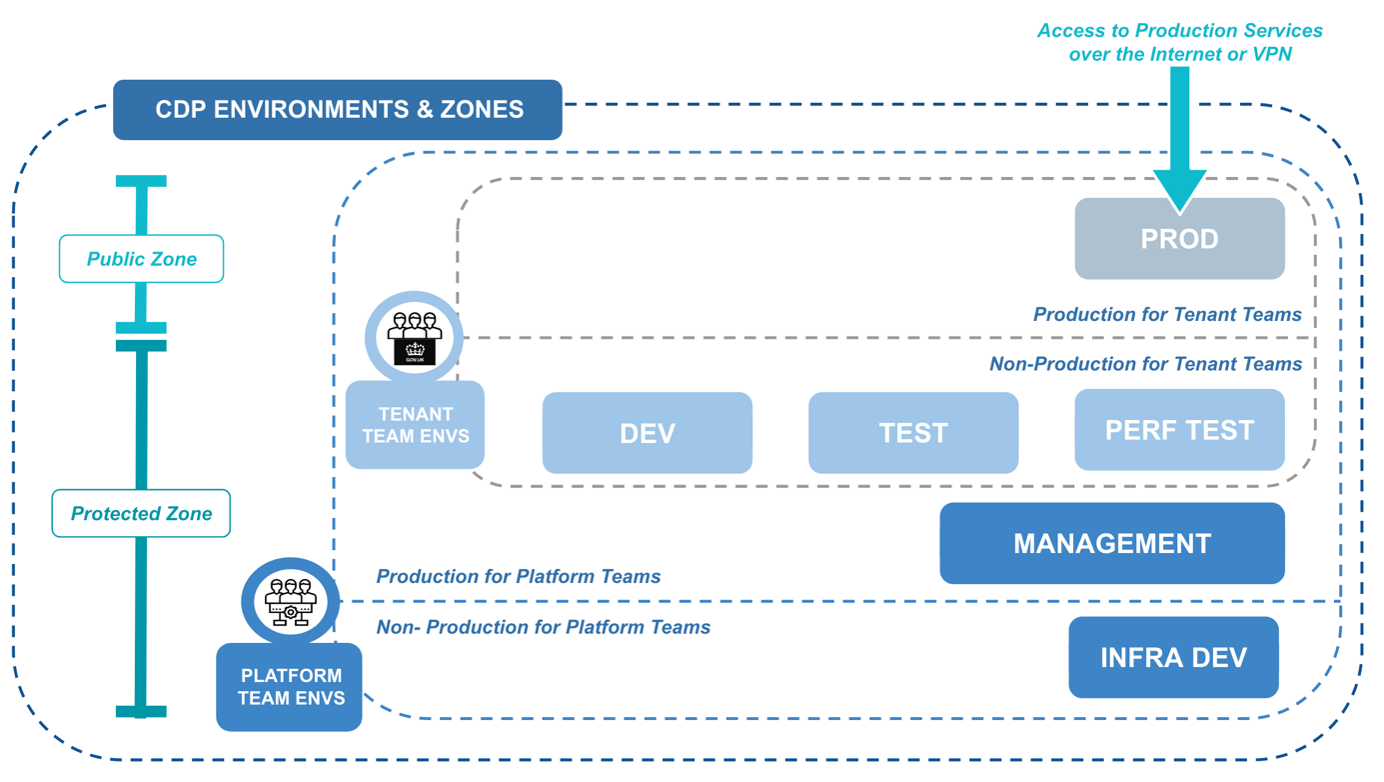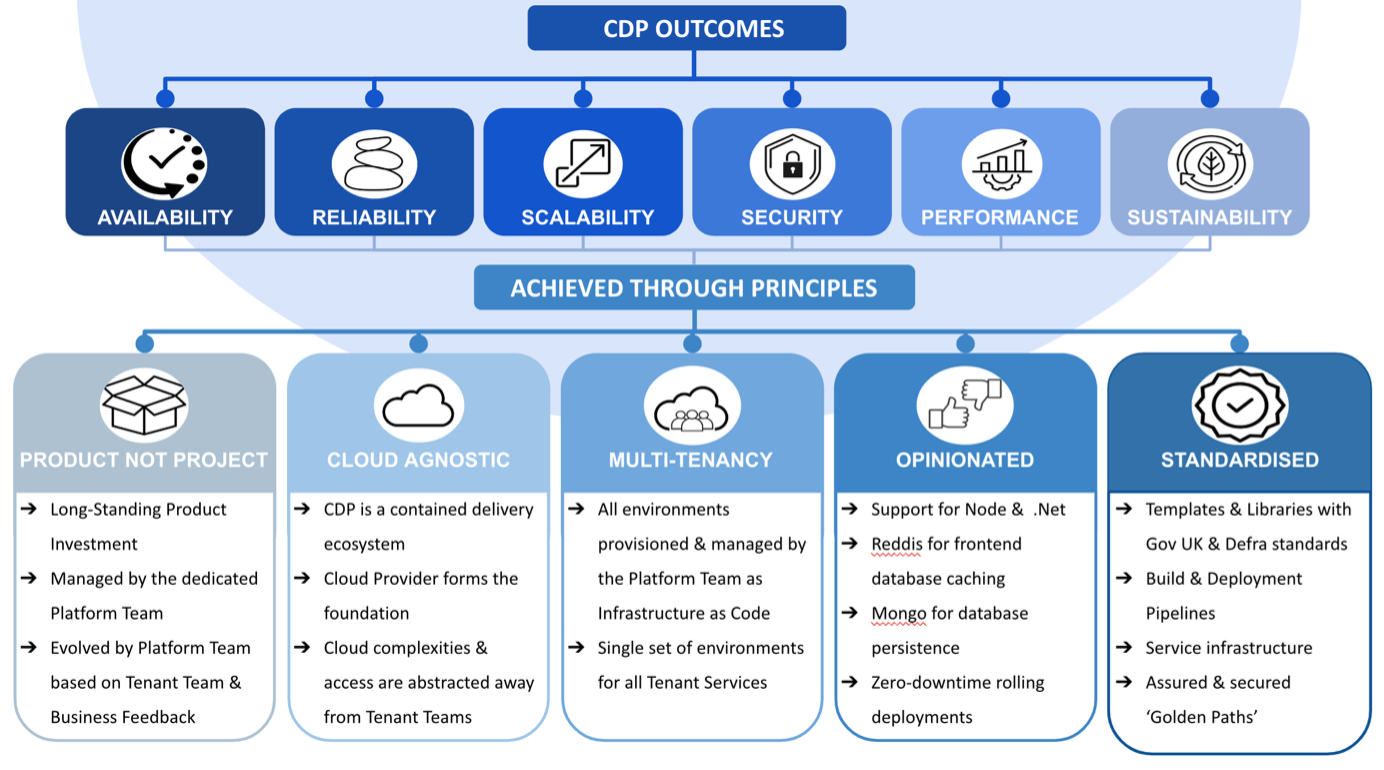Department for Environment Food and Rural Affairs’ (DEFRA) evolutionary approach to digital services
Cloud & Platforms
Ways of working
Public Services
6 min read
The Department for Environment Food & Rural Affairs (DEFRA) is the UK Government department responsible for safeguarding our natural environment, supporting our world-leading food and farming industry, and sustaining a thriving rural economy. DEFRA is a ministerial department that is supported by, and works collaboratively with, over 30 public bodies.
DEFRA’s digital and data transformation strategy aims to improve the standard of their integrated services whilst allowing customers seamless and easy access. Part of bringing the above strategy to life was to create an evolutionary platform without lengthily lead times, complexity and high costs to digital services across DEFRA and its armed length bodies (ALBs). The central focus for the project was to implement a collection of guidance, tools, technologies and practices intended to accelerate delivery, assure quality and simplify the running of digital services.
Partnering for success

esynergy partnered with DEFRA to modernise its infrastructure and build a new Core Delivery Platform (CDP). esynergy’s previous experience of delivering HM Revenue & Customs (HMRC’s) Multi-channel Digital Tax Platform (MDTP) meant the teams could bring direct experience and insights into the areas of complexity and risk to create another long-standing developer platform.
Our collaborative, value-driven approach focuses on improving communication between siloed teams, removing duplication of efforts across programmes, improving automation visibility, and simplifying governance.
The CDP replaced DEFRA’s dependency on multiple teams for its infrastructure and DevOps operations across its service delivery lifecycle. It would act as an internal development accelerator developed to support DEFRA’s digital delivery teams who deliver digital services and applications to internal and external users. The new CDP provides standardised toolchains, pipelines, workflows and operability to allow autonomous delivery and management of their digital services and applications.
Our approach

We focused on delivering core platform functionality first then progressing to additional patterns. Applying modern development processes and approaches, transparency and consistent communication with key stakeholders was exercised throughout the engagement along with were incremental planning, regular reviews and frequent feedback cycles.
The collaborative effort resulted in a revolutionary platform being built with best-of-breed software engineering practices. Some of the core outcomes are listed below;
A primary focus on core platform services – building a robust and scalable footing before offering more varied patterns and tools
Regular feedback and input from stakeholders, platform tenants and tailoring the backlog to match demand
• Multi-tenant environments and automated deploy and build pipelines, reducing the initial technical barrier of entry to teams that want to start building their services
Infrastructure-as-Code (IaC) throughout – no click-ops
Regular dialogue and feedback cycles with tenants and potential future tenants – identifying user needs and tailoring the backlog to match
By accelerating the move to automation and abstracting the complexity away from the digital service teams, the CDP allows its users to focus on solving its customer challenges to create the rationalism and sustainability DEFRA has been looking for.
Impact and value delivered
Cost savings
Savings have been realised by establishing reusable patterns and tools, eliminating the need to hire additional experts like DevOps engineers for intricate platform and infrastructure management. With automated deployment mechanisms and a streamlined pipeline for configuring code deployments, setting up new pipelines and development environments doesn't incur additional costs. As a multi-tenant platform, there's no waiting for environment provisioning, and costs can be distributed across multiple projects.
Shorter timescales for delivery
By providing self-service functionality to developers through repeatable patterns, we've abstracted away underlying complexities and established standardisation. This empowers developers to concentrate on delivering business value, thereby reducing development time and accelerating both output and quality.
Improved compliance & standards
Utilising repeatable patterns has enhanced compliance standards by ensuring development consistency. Furthermore, the platform maintains specific opinions for certain tools and technologies. For instance, all front-end services are required to be built on Node.js, and MongoDB is mandated for database backing. This approach ensures that services can be updated in place without requiring schema updates.
Faster feedback loops
By establishing this self-service functionality, service development time has drastically improved. Reducing the deployment time for a Proof of Concept from 3-6 months down to minutes/hours. In addition to this, user and stakeholder feedback can now be obtained and implemented iteratively, rather than waiting for the next release window.

DEFRA's partnership with esynergy has been transformative for our digital services. By modernising our infrastructure and implementing the Core Delivery Platform, we've achieved cost savings through reusable patterns and automated deployment mechanisms, our delivery times have shortened, compliance standards have improved, and feedback loops have become faster, all contributing to a more efficient and innovative digital ecosystem.
Tim Howard
Deputy Director, Major Projects, Cross-Cutting Technical Services
Department for Environment, Food & Rural Affairs
Ongoing innovation
The platform’s initial development focused on creating a MVP (Minimum Viable Product) comprising reusable patterns and tools. These resources empower development teams to swiftly deliver digital services. Now, as the user base grows, the team is shifting its focus to broaden and deepen the range of tools and patterns available to meet the increased demand. Now introducing an API gateway to facilitate the sharing of data held by services with third parties via APIs. This enhancement enables seamless data access and sharing across departments and with external users.
A primary goal of the platform is to streamline the teams’ focus on service delivery without worrying about the underlying infrastructure. This allows them to concentrate on what makes their service unique rather than dealing with foundational elements. To accomplish this, the CDP platform automates routine tasks and offers self-service options wherever possible. We’ve established a centralised portal for deploying, monitoring, and managing services, addressing common needs efficiently. Based on user feedback, we’re enhancing the portal with features that improve accessibility, streamline troubleshooting, and integrate seamlessly with logging and metrics functions.
Our ongoing commitment is to continually enhance user experience and facilitate smoother operations for our platform users.
Cloud & Platforms
Ways of working
Public Services
Get in touch
Need support with your platform vision?
Discover more


